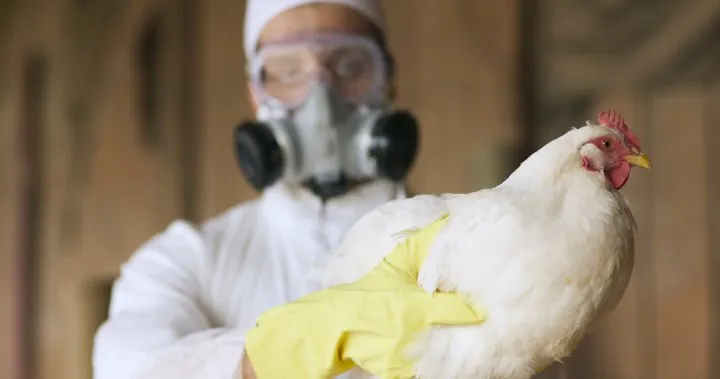
Urgent Alert: Bird Flu Outbreak in Canada – What You Need to Know About Poultry and Dairy Safety!
2024-11-15
Author: Jacques
Overview of the Bird Flu Outbreak
As the bird flu, specifically the H5N1 strain, continues to raise alarms across Canada, the situation escalated with a British Columbia teenager being the first human case documented in the country. It remains unclear how this teen contracted the virus. However, Dr. Theresa Tam, Canada's chief public health officer, revealed in a recent statement that genomic sequencing indicates the strain is closely related to those found in local poultry farm outbreaks.
Current Situation in Poultry Farms
Since early October, more than 20 locations in British Columbia have reported infected poultry, and the count currently stands at 28 infected sites across the province, alongside two in Alberta and one in Saskatchewan, as documented by the Canadian Food Inspection Agency (CFIA). Dr. Tam reassured the public, noting that while H5N1 remains a concern, there have been no reported cases of the virus affecting dairy farms in Canada, despite several outbreaks in the United States.
CFIA's Response to Milk Safety
To safeguard public health, the CFIA has implemented rigorous testing on raw milk arriving at processing plants across Canada and is also screening samples of pasteurized retail milk for the virus. Their proactive surveillance aims to serve as an “early warning” system, similar to wastewater testing for viruses like COVID-19.
Milk and Dairy Safety Assurance
Consumers can breathe a sigh of relief regarding milk safety. The CFIA states that all milk sold in Canada undergoes pasteurization—a process that effectively eliminates harmful bacteria and viruses, including H5N1, ensuring the safety of milk and dairy products for consumption. Cooking poultry thoroughly also remains an effective way to mitigate risks associated with H5N1.
Expert Predictions and Farm Protocols
Experts warn, however, that the risk may extend to other provinces. Shayan Sharif, a pathobiology professor at the University of Guelph, predicts that H5N1 could spread eastward. He emphasizes that farmers must take swift action should they suspect avian flu in their flocks, as any confirmed cases would require the culling of infected birds—though cattle are not subject to the same protocol.
Biosecurity Measures for Farmers
The virus spreads not only through direct contact with infected animals but also via contaminated environments. Implementing strict biosecurity measures is therefore paramount; farm workers must adhere to wearing personal protective equipment, changing clothes upon entering and exiting farms, and ensuring that equipment is not shared between farms. Disinfecting vehicles used to transport supplies is also critical.
Vaccination Initiatives for Farm Workers
In a progressive move, Sharif advocates for the provision of avian flu vaccines for farm workers, mirroring initiatives in Finland. Although Canadian health authorities have approved three types of influenza vaccines that could target H5N1, they are not yet available domestically. Nonetheless, Dr. Tam noted that public health officials are keenly observing Finland's approach and are exploring the potential introduction of H5N1 vaccines as the situation unfolds.
Stay Informed: Protect Yourself and Your Family!
Keep updated on health advisories and practice safe handling of poultry and dairy products to ensure your wellbeing amid these unfolding events!









 Brasil (PT)
Brasil (PT)
 Canada (EN)
Canada (EN)
 Chile (ES)
Chile (ES)
 España (ES)
España (ES)
 France (FR)
France (FR)
 Hong Kong (EN)
Hong Kong (EN)
 Italia (IT)
Italia (IT)
 日本 (JA)
日本 (JA)
 Magyarország (HU)
Magyarország (HU)
 Norge (NO)
Norge (NO)
 Polska (PL)
Polska (PL)
 Schweiz (DE)
Schweiz (DE)
 Singapore (EN)
Singapore (EN)
 Sverige (SV)
Sverige (SV)
 Suomi (FI)
Suomi (FI)
 Türkiye (TR)
Türkiye (TR)